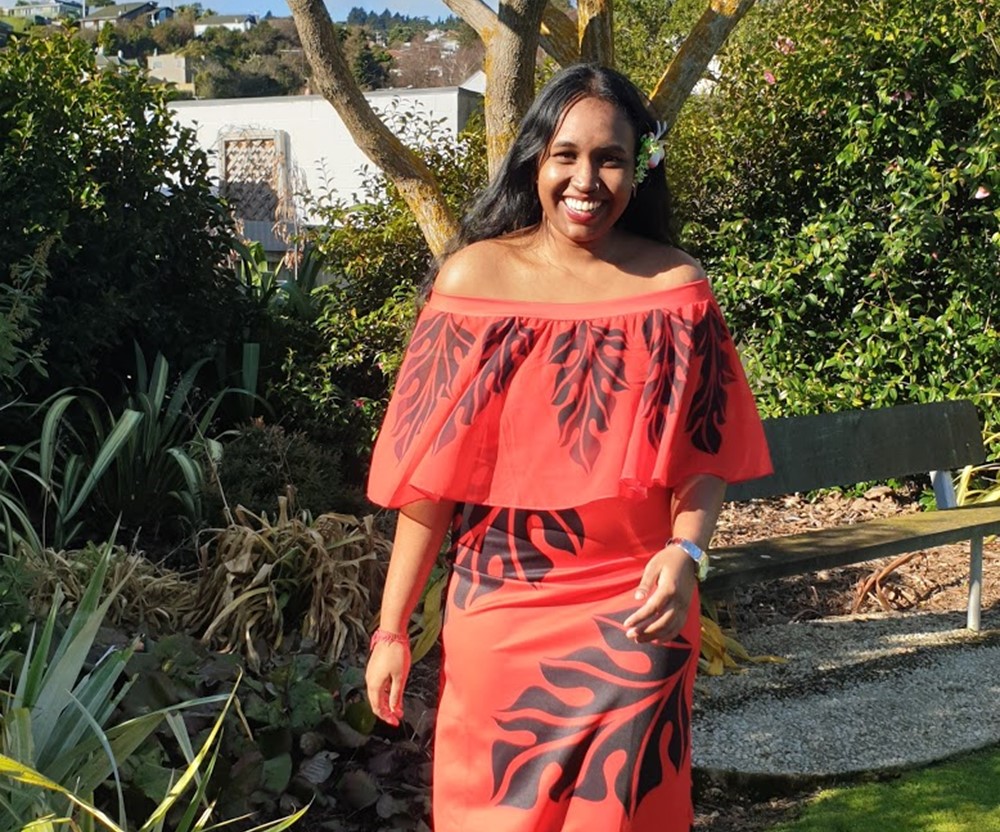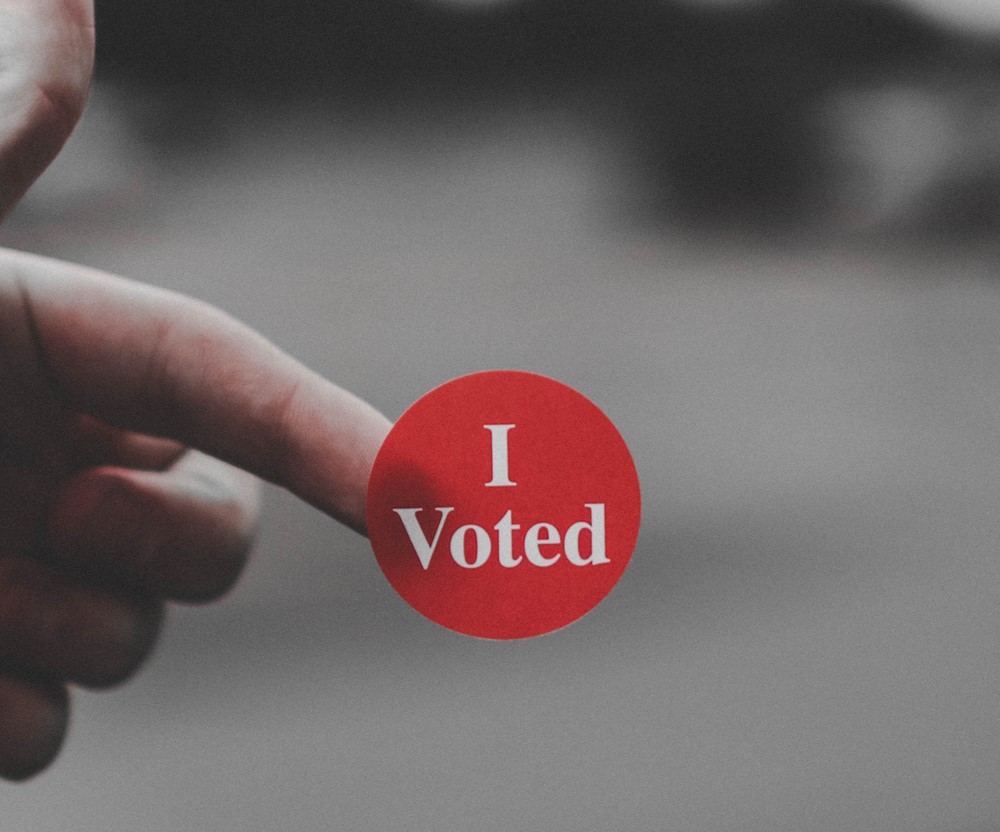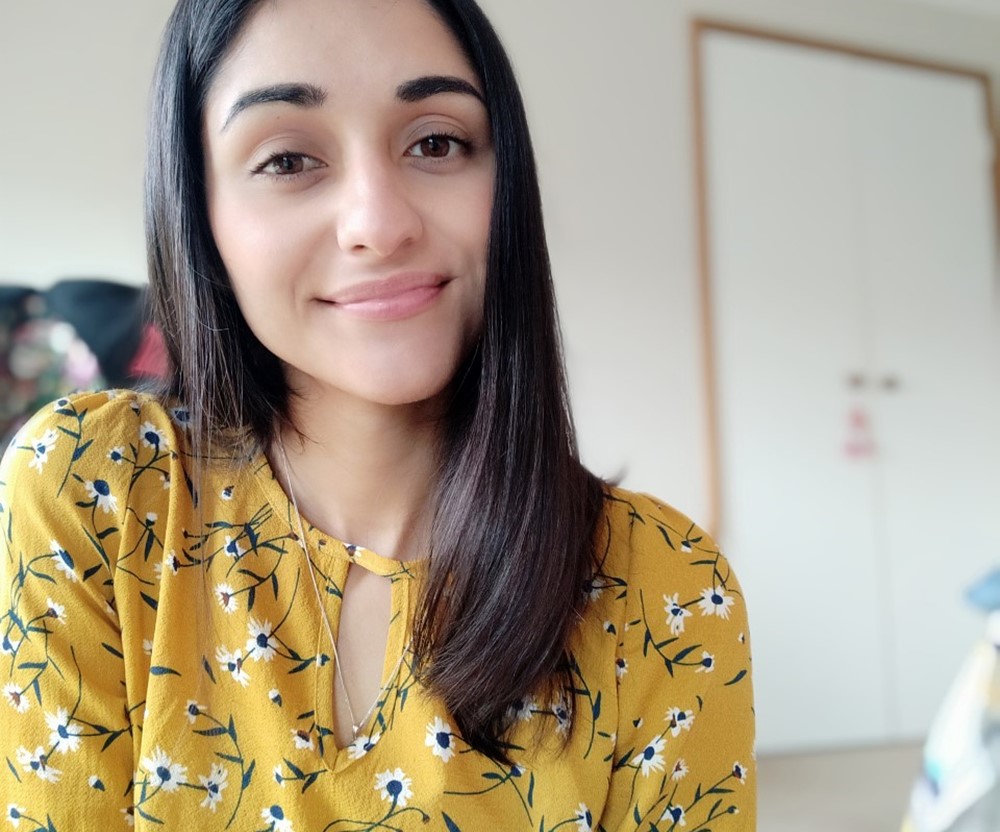
#WĀHINEWEDNESDAY: Ranisha Chand
Fighting for the rights of those who don't have a voice
Categories
- Hamilton
- Community
Ranisha Chand is a talented and determined young woman based in Dunedin. She is currently embracing the classic first-year student experience, living in Salmond College and pulling long hours to complete those assignments that keep cropping up. She is studying Human Anatomy, and aims to enter Otago Medical School as a postgraduate student.
Beyond her studies, Ranisha is passionate about raising awareness of issues affecting migrant communities, women and young people in society. She believes that if passion is your driver, then your journey becomes a memorable one. Ranisha tirelessly fights for those in her community without a voice, and believes that equity is the pathway to equality.
Below are some quick-fire questions to get to know more about Ranisha:
1. What are New Zealand’s greatest boasting points for you?
New Zealand’s incredible scenery and L&P.
2. Favourite pick-me-up meal?
Kebab wraps.
3. Active relaxer or night-in gal?
Depends, but mostly a night-in.
4. Favourite inspirational quote or words to live by and learn from (original or borrowed)?
I have two inspirational quotes that I love:
“We realize the importance of our voices only when we are silenced,” Malala Yousafzai.
“The best way to find yourself is to lose yourself in the service of others,” Mahatma Gandhi.
As an immigrant to New Zealand, the struggle to acclimate to a new place must have been hard work. What steps did you take to do so?
I arrived in New Zealand, from Fiji, and completed the final four weeks of intermediate here. It was definitely hard work. Back home, in my village, I was taught to live according to the cultural norms and standards of society there. However, moving to New Zealand totally changed these standards, as the cultures were so different. This meant I had to adjust and start all over again!
Unfortunately, there were no prescribed, or helpful, steps to follow to integrate into this new country. There were definitely both good and bad experiences involved in this process. However, an overriding positive note for myself, and other immigrants, during this huge life- transition, is the discovery of coping mechanisms within, that we never knew we had.
You seek to raise awareness of issues affecting migrant communities, women and young people in society. This is a lot to take on.
Where did you start with this, and what are some changes that you have seen come to fruition that you are proud of?
My core passion has always been feminism, even before I learnt what feminism was.
I don't exactly remember when it started, but back home in my village, when I was around 9 years old, I used to hear beating and screaming next door, however, the very next morning the wife, with a black eye and busted lip, would kiss her husband goodbye as he left for work. Everyone around me acted as if nothing had happened, whereas I would be boiling mad. I still clearly remember my feelings of anger and frustration. This, I believe, birthed my passions.
It wasn't until I came to New Zealand, and got introduced to Shakti, that I actually started to explore and learn about all that stood in the way of the success, wellbeing and equality of women. Shakti NZ, is a community organisation which works with refugee and migrant women of African, Asian and Middle Eastern origin.
Through Shakti, I was able to learn more about the systematic oppression of migrant communities, the importance of intersectionality, discrimination, bullying, sexual violence, and domestic abuse - just to name a few. My involvement with Shakti enabled me to take practical steps against these pervasive issues, with the end goal of empowering women. One of these practical steps was taken in 2017 when, during one of our Shakti meetings, I raised the idea that we needed to organise a protest and march against bullying and discrimination. This was achieved and was a success so, the following year we also did a march against forced marriage and rape culture.
Through my involvement with Shakti, I have also done a lot of work behind the scenes that I’m extremely proud of. For example, gathering signatures to draw a petition for change in the Marriage (Court Consent to Marriage of Minors) Amendment Bill. The amendments ensured that permission from a family court, rather than parents, must be obtained. This is a life-changing alteration for many young women, as many cases of underage forced marriages are initiated by the parents. I have to acknowledge the work that so many women put together to make this change, and I am proud to have been a part of this.
You strove to overcome a fear of public speaking, and now often use this as a platform for change.
What tips or advice would you share with other young people struggling to work on improving, or overcoming, an area of weakness?
Finding your ‘why’ is key. When I run workshops for youth, and talk about my passions, a lot of the youth run away, as if the word passion places a whole lot of responsibility on them. So, I often try my best to remove this fear. It takes time to figure out your purpose and passion, so I often encourage my peers to be curious, and find something that appeals to them, and makes them want to be a better version of themselves. Finding this version of yourself can help you overcome areas of weakness and fear.
My passion is feminism. This is my driving agent. It keeps me awake and curious many nights. It is my reason to get out of bed every morning, and most importantly, encourages me to be better.
Public speaking is something I still struggle with, but it is the power of my passion that outweighs my insecurities and fears. Consequently, no matter how bad I do on the stage, at the end of the day when I sleep, I have a smile on my face.
What have you found to be an effective means of communicating your voice and opinions, in a memorable, relatable and impactful way with your ‘target audience’?
The power of a story is limitless. To be an effective speaker you need to imagine a very uninterested audience. Whenever I am about to speak I always ask myself what is that one thing that would make the most uninterested person in the crowd turn their head to you? And my answer is: our experiences and stories. I alway find it fascinating when my audience will nod their heads when I talk of my experiences. It's like they connect and relate in the most unimaginable ways. You can never go wrong with your own story, because no one knows it better than you do. And mostly importantly, it is your story to tell and no one else's. The more confidence you speak with, the more powerful the impact on the audience. So, speaking of my own experience and being comfortable in my own skin is always an effective means of communication.
Has anyone guided or supported you in your journey so far? Can you share who and how they helped you?
To maintain a healthy wellbeing, I keep my social circle quite small. This is one of the ways I retain a focused head space. However, no matter how well you balance your life, there are always going to be low points. Thankfully, during these low points, my biggest support has been Shakti’s National Coordinator and my good friend, Arisha. Whether it is me venting abouting a political party, talking about hardships, or trying to recover from a burnout I know she is only ever a call away. And just knowing that you have that support, makes walking in front of decision-makers and failing, so much easier.
Lastly, if you could change one thing (with no limitations on timing or budget) in your lifetime, what would it be?
Give women the power to run the world. Period! We are humans, which makes humanity our biggest gift, and I have always believed that women have the heart to nurture that humanity - which is in desperate need right now. Beyonce’s lyric summarises this sentiment: “Who run the world? Girls!”
Here are some other stories that you might enjoy reading.




